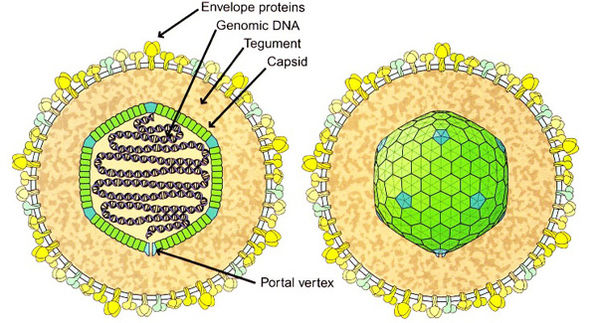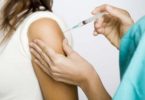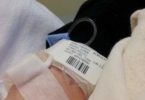What's in this article?
What is Epstein-Barr virus?
Epstein-Barr is the virus that causes mononucleosis. You might know this disease better by its nickname, “mono.” It’s also called the “kissing disease” because of one way you can spread it to someone else.
Even though Epstein-Barr virus (EBV) isn’t a household name, you’ve probably been infected without knowing it. Lots of people carry the virus but don’t get sick.
What Are Risk Factors and Causes of Epstein-Barr Virus Infections?
Epstein-Barr virus (EBV) is a contagious virus that is transmitted from person to person and occurs throughout the world. The cause of infection is generally close person-to-person contact through bodily fluids, especially saliva. It may also be transmitted during sexual contact through semen, and can also be spread by blood transfusions or organ transplants.
The virus contains double-stranded DNA and multiplies in white blood cells (lymphocytes) and other cells, such as those lining the mouth, tongue, and nose. The human immune system usually contains the virus effectively, reducing but not eliminating the viruses. A few living viruses will persist in a line of lymphocytes for the rest of the person’s life. This is known as “latent” infection (inactive stage). Occasionally, the virus may multiply (reactivate), but this does not cause symptoms unless the person’s immune system is not working properly.
While most people in the U.S. have been infected with Epstein-Barr virus (EBV), mononucleosis is more common in whites than in the African-American populations.
Some risk factors associated with acquiring Epstein-Barr virus (EBV) include being female, living in tropical countries, and being sexually active.
Symptoms of Epstein-Barr virus
Symptoms of Epstein-Barr virus (EBV) infection can include:
- fatigue
- fever
- inflamed throat
- swollen lymph nodes in the neck
- enlarged spleen
- swollen liver
- rash
Many people become infected with Epstein-Barr virus (EBV) in childhood. Epstein-Barr virus (EBV) infections in children usually do not cause symptoms, or the symptoms are not distinguishable from other mild, brief childhood illnesses. People who get symptoms from EBV infection, usually teenagers or adults, get better in two to four weeks. However, some people may feel fatigued for several weeks or even months.
After you get an Epstein-Barr virus (EBV) infection, the virus becomes latent (inactive) in your body. In some cases, the virus may reactivate. This does not always cause symptoms, but people with weakened immune systems are more likely to develop symptoms if Epstein-Barr virus (EBV) reactivates.
Epstein-Barr virus Diagnosis
Diagnosis is suggested on the basis of the clinical symptoms of fever, sore throat, swollen lymph glands and the age of the patient. A physical examination may reveal an enlarged liver and/or enlarged spleen. The liver and spleen may also be tender. Laboratory tests may be needed for confirmation.
Blood findings with infectious mononucleosis may include an elevated white blood cell count, an increased percentage of certain white blood cells and a positive reaction to a “monospot test.” The monospot test relies on clumping of horse red blood cells by mononucleosis antibodies presumed to be in a person’s serum.
antibody tests for Epstein-Barr virus (EBV) measure the presence and/or the concentration of specific Epstein-Barr virus (EBV) antibodies. Different laboratory tests can measure specific Epstein-Barr virus (EBV) antibodies. Some of these tests can be performed on a single sample of blood, while others compare different samples of blood over a period of time.
Treatment for Epstein-Barr virus
Like other viruses, Epstein-Barr can’t be treated with antibiotics. Mono should clear up on its own without treatment in a few weeks.
What You Can Do at Home
Although no medicine can cure an Epstein-Barr virus (EBV) infection, you can take these steps at home to ease your symptoms:
- Get plenty of rest.
- Drink a lot of water and other liquids to stay hydrated.
- Suck on lozenges or ice pops, or gargle with warm salt water, to make your sore throat feel better.
- Take painkillers like acetaminophen or ibuprofen to bring down fever and relieve body aches. (Don’t give aspirin to children under 19 years of age because of the risk of a rare but serious condition called Reye’s syndrome.)
Ease back into work or school, taking things slowly until you feel better. For a month or so, avoid sports, heavy lifting, or other vigorous activities in which you could injure your spleen.






Leave a Comment